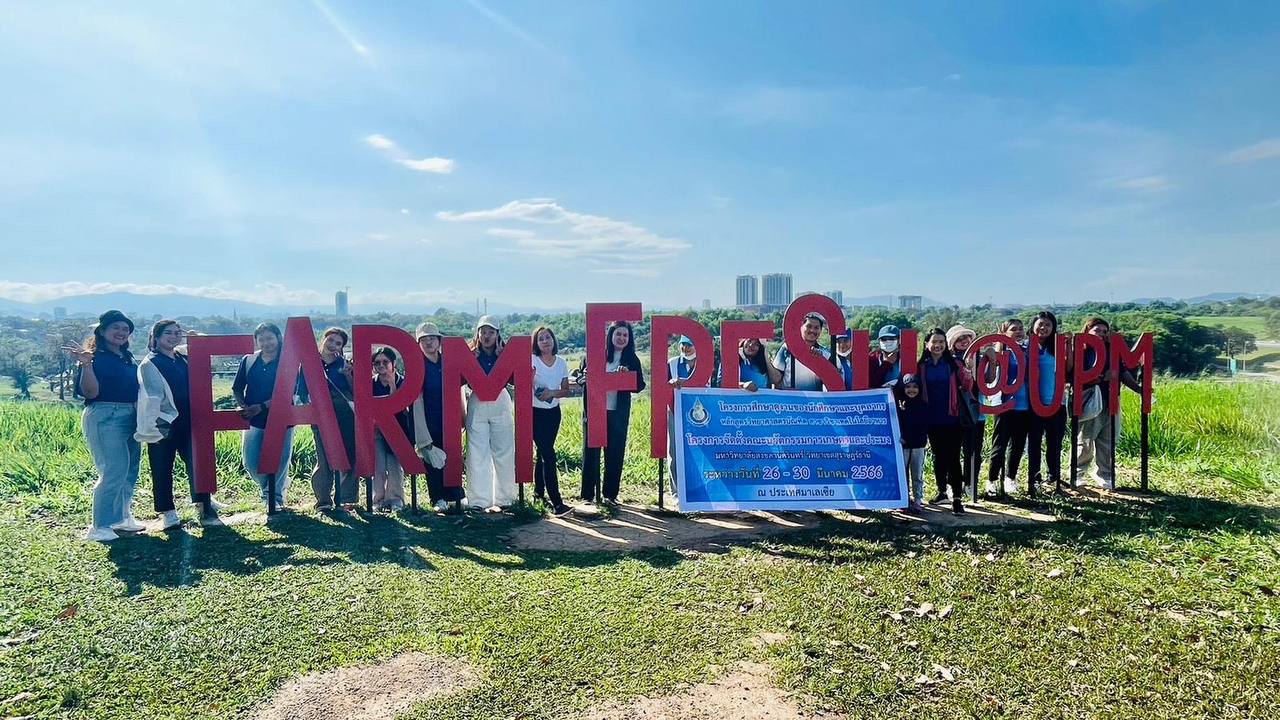5 September 2017 - The molecular detection of foodborne pathogen via PCR workshop was a two-day workshop, organized by Laboratory of Food Safety and Food Integrity (FOSFI), Institute Tropical Agriculture and Food Security (ITAFoS) in support with Eppendorf, beginning on the September 5, 2017 and ending on the September 6, 2017. Held at the Central Laboratory, ITAFoS, UPM, the workshop consists of a combination of seminars and laboratory sessions. A total of seven participants registered to attend the workshop with all of them are academicians, research assistants, and graduate students.
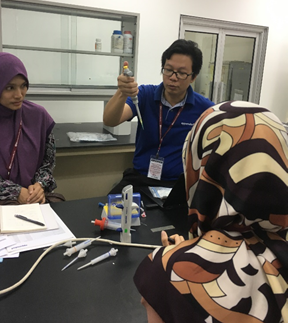
Mr. Wan demonstrating Eppendorf’s product during the workshop theory session
Professor Dr. Son Radu (FOSFI) and Mr. Wan Keng Fei (Eppendorf) were the invited speakers for the workshop’s theory session. Prof. Son shared his experiences and provided an insight on the current food safety through his lecture while Mr. Wan shared his knowledge on how to handle samples and control contamination. This workshop on PCR as a technique of molecular detection of foodborne pathogens was conducted with the aim to provide exposure on PCR in detecting foodborne pathogens. Besides that, the training also supports capacity building in the Food Safety Community to expand networks and, encourage the sharing of knowledge.
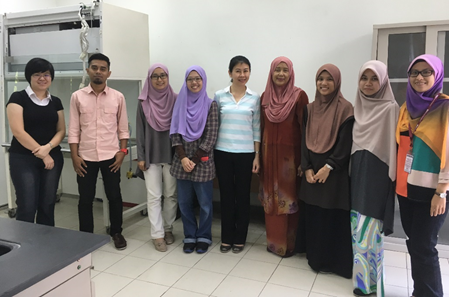
Group photo at the end of the workshop
The workshop focused on detecting singleplex pathogen and detecting multiple pathogen. As PCR amplifies the targeted DNA sequence, detecting multiple pathogens at their specific sequences is possible. Escherichia coli was used as the pathogen for singleplex detection while E. coli, Salmonella and Staphylococcus aureus was used as the pathogens for multiplex detection. Each participant was given a chance to hands on during the practical session guided by the facilitator. By the end of the practical session, they were able to view their results of the PCR via agarose gel electrophoresis. The workshop was conducted successfully with the objective achieved. Most importantly, the academicians and researchers engaged in the capacity building to share their knowledge in the hope to develop research solutions to current food safety and security issues.












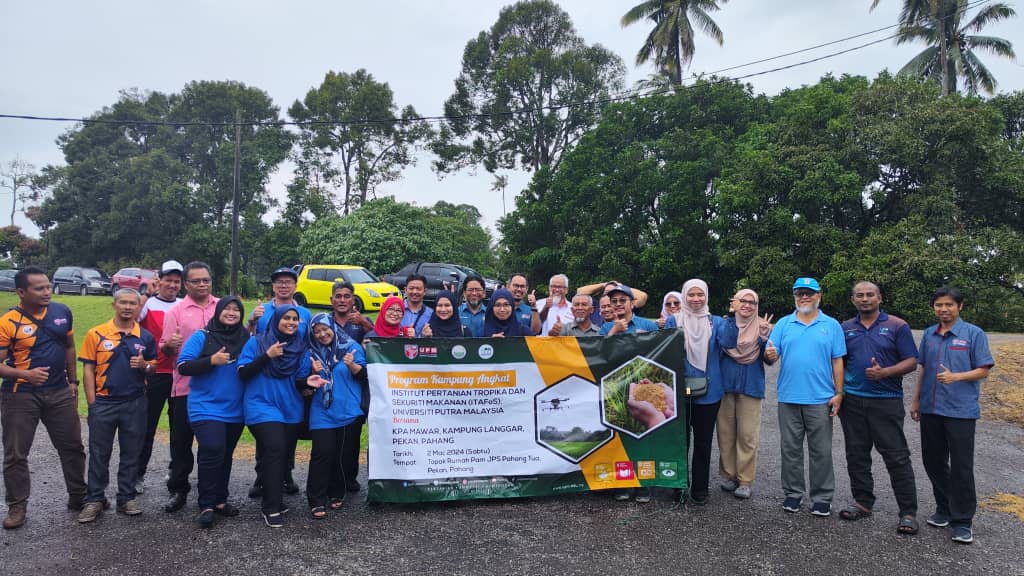
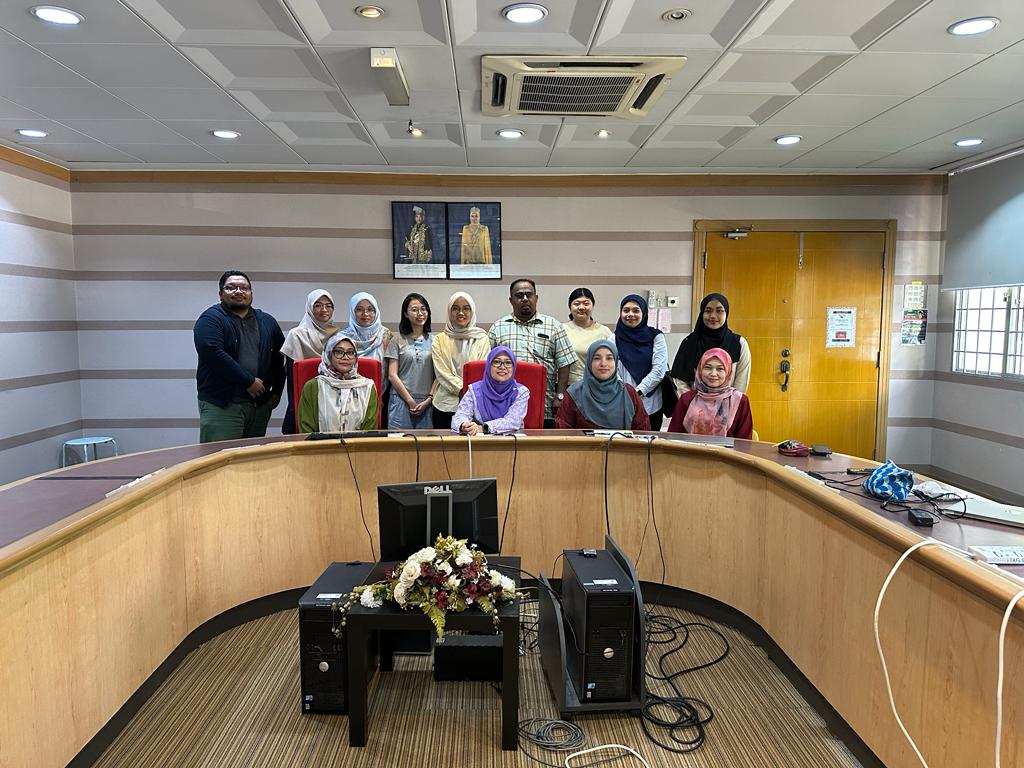
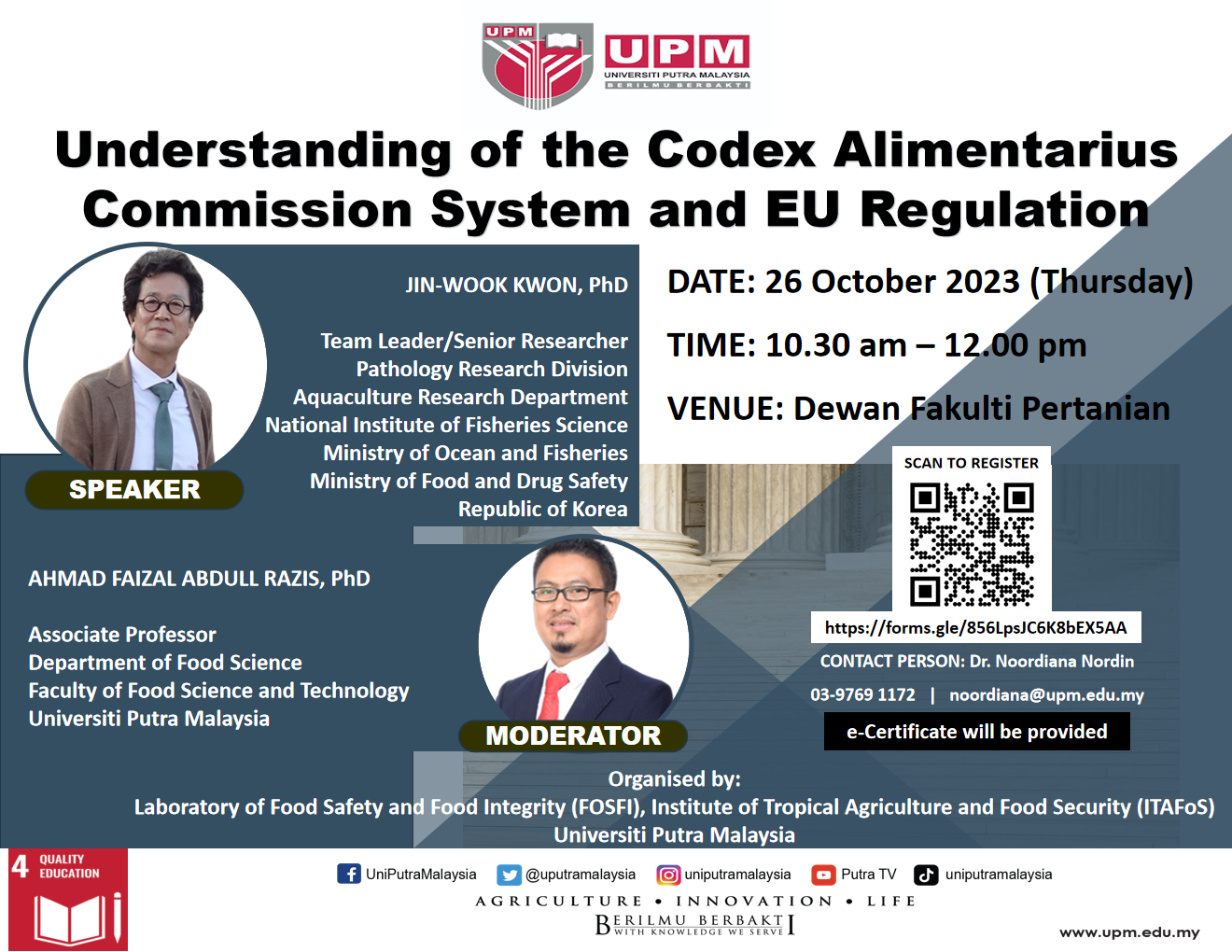
_(1).jpeg)

